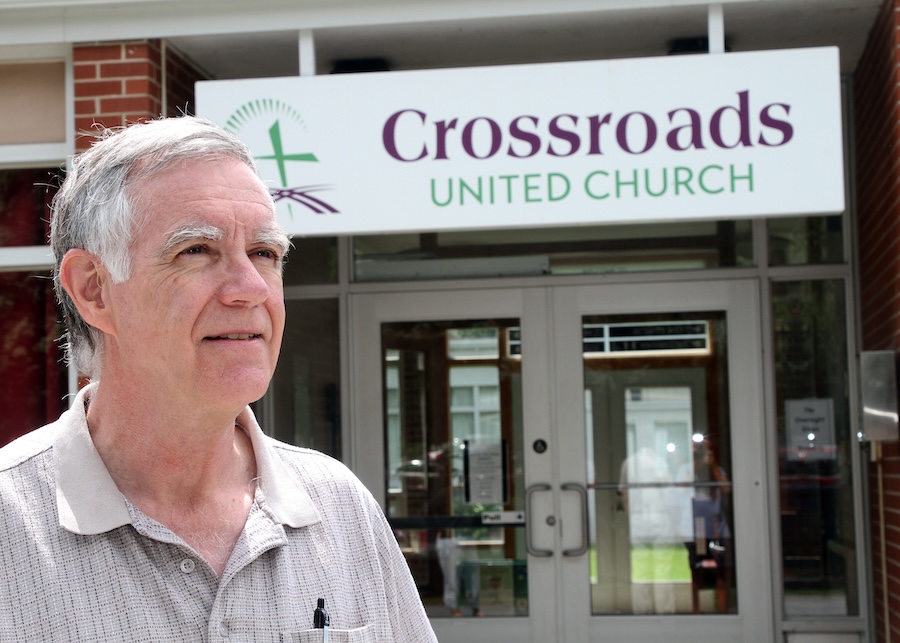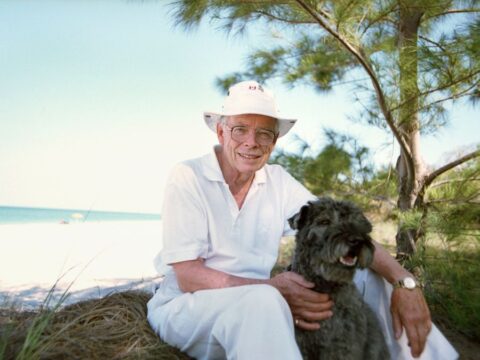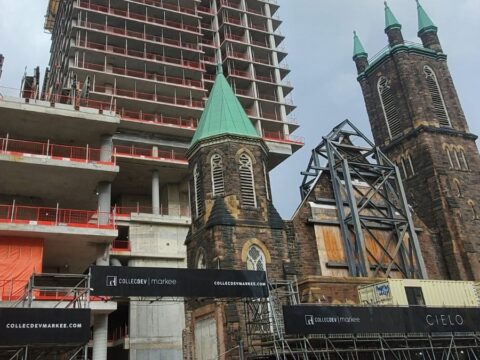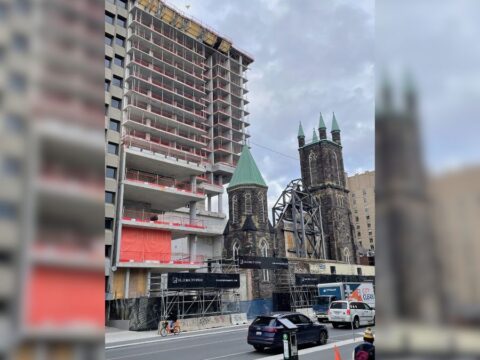Allan Baer’s first brush with activism was in 1973, in his hometown of Kitchener, Ont., when he tried to persuade city council not to scrap environmentally friendly trolley coaches in favour of gasoline-burning buses. He was unsuccessful, but he did learn an important lesson: that you can’t create change alone.
“You’ve got to spend time finding a way of keeping in touch with other people and helping build that constituency, helping build the structure that can go forward,” says Baer. “That’s why I was interested in being a member of a church.”
You may unsubscribe from any of our newsletters at any time.
These days, Baer is putting those principles of social justice and community to work at his Kingston, Ont., church as the liaison person for Crossroads Village. The initiative hopes to bring 18 sleeping cabins for unhoused people to an unused stretch of land at Crossroads United. The cabins are currently funded through the city of Kingston; they also sit on city land, and cabin residents use municipal buildings — an arena in the summer, and a marina in the winter — for services like washrooms, showers, kitchens, and laundry. But in late 2023, city council voted to wind down the program, citing costs, and has served the cabin residents eviction notices for Sept. 30. When Crossroads learned the news, the congregation offered to host the cabins.
But the road to moving the cabins to the church hasn’t come without problems. The non-profit that runs the cabins also just lost a donor who would cover their operational costs. As a result, the future of the cabins is in limbo. And as far as Baer knows, Crossroads is the first United church to take on this kind of project, so members are having to learn everything as they go.
Along with logistical challenges, the church had trouble getting neighbours on board with the idea. Baer organized a public meeting in June and the reaction was mixed. Some people were supportive of the project, but others voiced concerns. One asked if a traffic study had been done, believing Crossroads Village would lead to an increase in vehicles on nearby roads. Another said that many local children play and walk through the area where the cabins would be located, and she worried about their safety. Several neighbours brought up the potential of drug use and crime, while several others thought the cabins should go elsewhere in the city. The meeting ran for two and a half hours.
More on Broadview:
Baer says that he understands neighbours’ worries, but that churches have a mandate to push past those fears. He cites the Gospel of John, which says that God is love, and in love there is no fear. He also notes that for the two and a half years that the program has been running, there have been no issues in the residential neighbourhoods where the cabins have been located. But Baer does think that it would have been helpful to visit the apartment buildings surrounding Crossroads United to speak with people one-on-one ahead of the public meeting. He hopes that the congregation’s experience can help serve as a guide for other churches interested in similar initiatives.
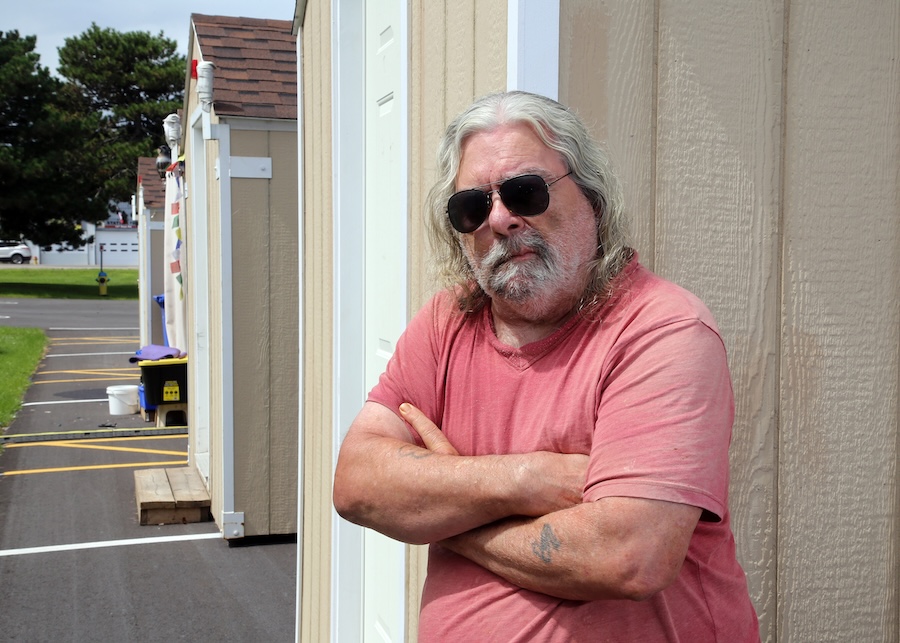
Local opposition hasn’t been the only issue. The church needs several weeks of onsite work to get the property ready to host the cabins before the city’s Sept. 30 eviction deadline. Crossroads United also had to put together a lease so that the land could be rented to Our Livable Solutions (OLS), the non-profit organization that created the sleeping cabin program and will continue to oversee its operation. Baer says that the biggest obstacle in creating the lease in a short period of time was the fact that it had to be done over the summer, when many of the people who needed to draft and approve it were on vacation.
In early July, city council approved the plan for Crossroads Village and two months later, on Sept. 7, East Central Ontario Regional Council ratified the lease agreement — the final step needed before construction could begin. But just as momentum was building, a new problem surfaced.
With the city ending their participation in the program, OLS needed a new source of funding for day-to-day costs, which include paying two staff members to be onsite 24 hours a day. The organization thought it had secured a donor, but they pulled out in early September.
“Without operational funding, we won’t be able to proceed with construction of the site,” says Chrystal Wilson, founder and acting executive director of OLS. “There’s sunshine in the future, though. We have a couple of opportunities we hope will come through so that we can open in time for winter. It would be heartbreaking to have a site available to house people and no way to operate it, leaving people out in the cold.”
For now, cabins have been put into storage by the city and will be held for up to two years while OLS tries to find new funding. According to a statement released by the city, “Staff from Housing and Social Services and City-funded Housing First Workers continue to offer housing solutions to cabin residents in advance of the Sept. 30 Sleeping Cabin program winddown.”
The process of creating Crossroads Village has been a learning curve for everyone involved. But Baer has never wavered in his belief that Crossroads United was right to take on this enormous project.
“I think the message to [other churches] is: see what you can do, try it out.”
***
Anne Thériault is a journalist in Kingston, Ont.

